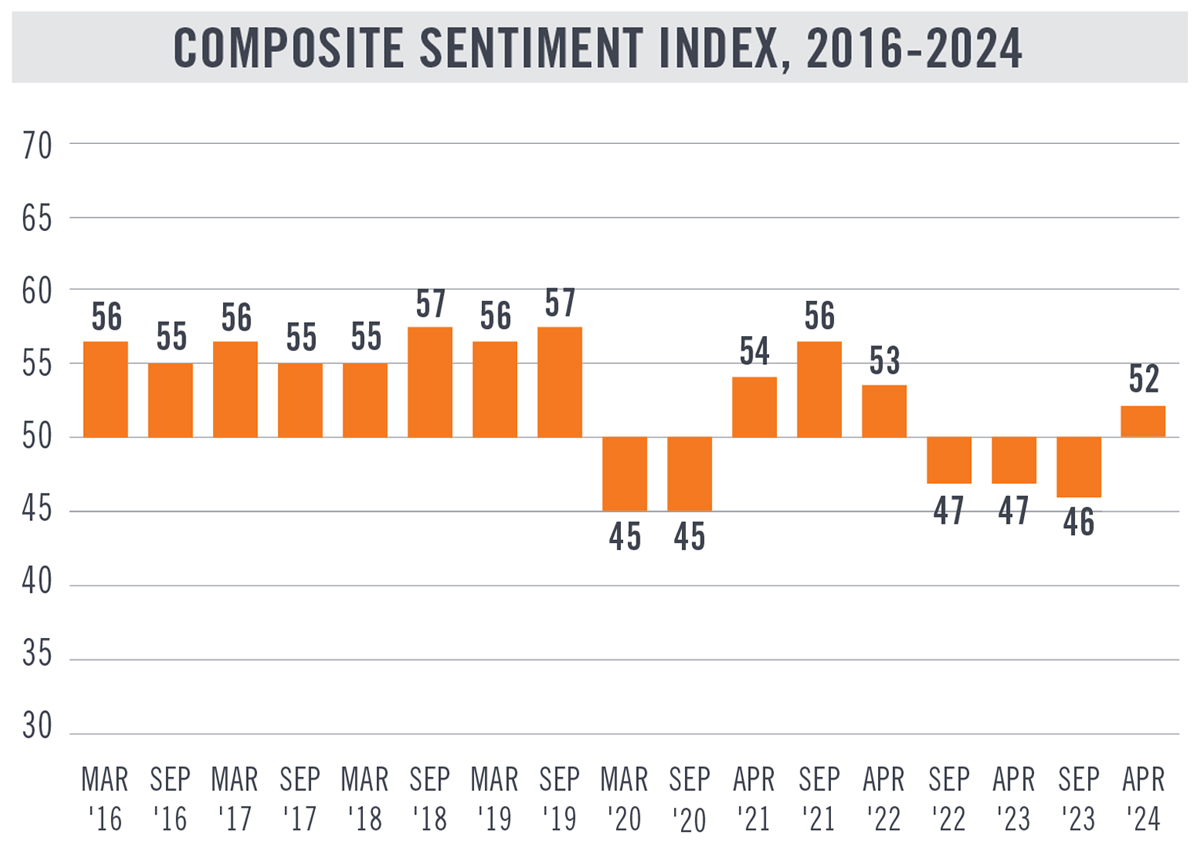Suite Spot
In 1939, seven owners of southern motor court hotels created Quality Courts, an alliance of motels that shared standards for the quality of their facilities and operating procedures. They could not have imagined that their alliance would grow into one of the world’s largest hotel chains, operating 10 brands in the midscale, economy, upscale and…
In 1939, seven owners of southern motor court hotels created Quality Courts, an alliance of motels that shared standards for the quality of their facilities and operating procedures. They could not have imagined that their alliance would grow into one of the world’s largest hotel chains, operating 10 brands in the midscale, economy, upscale and extended-stay segments.By the end of 2007, Choice Hotels International Inc. was franchising 5,500 hotels representing 450,000 rooms in the United States and 37 other countries and territories. That included the newly introduced Cambria Suites, an upscale brand with Generation X-friendly features.The company plans continued expansion. Choice more than doubled its number of hotels under development from 401 in 2003 to 1,004 in 2007. This year, it will continue to roll out properties under the Cambria Suites flag and under two brands in the profitable extended-stay segment: the middle-market MainStay Suites and economy offering Suburban Extended Stay Hotel, which Choice acquired in 2005.Such growth is possible, believes vice chairman & CEO Charles Ledsinger Jr., because the company, which owns only three of its hotels and manages none, affords its owners the opportunity to achieve a high return on investment—in part by keeping entry costs low by offering them “value-engineered” prototypes. That, in turn, encourages them to build more Choice hotels. “We want to deal with our developers with openness and integrity,” Ledsinger said. “These developers may be putting their life savings into building one of our hotels, and they want to do that with someone they can trust.”Choice also offers developers an array of brand choices, from economy to upscale (see “Choice Offerings” on page 33). Ledsinger believes the “value brands,” Choice’s economy and midscale chains, are particularly attractive in the current economy. “We are likely going to see some trading down, from (guests moving from) upscale hotels to mid-market,” he said. “We are starting to see a little of that from corporate, group-type business.”Choice’s new Cambria Suites brand is designed to transcend that flight to economy. The brand caters to the Gen X traveler, a demographic group that is grabbing the attention of hotel companies because it accounts for a growing percentage of the U.S. travel dollar. Back in 2004, for instance, a study by D.K. Shifflet & Associates estimated that Americans aged 25 to 40 spent an average of $2,140 per capita on travel, including lodging. Baby Boomers spent $2,016.To attract Gen X users, the all-suites Cambria Suites properties include two-story lobbies with lounge seating, media walls with 50-inch plasma TVs, casual dining areas and 24/7 convenience stores offering such fare as energy drinks and organic snacks. According to brand president William Edmundson, the product also fills a void in Choice’s offerings: a lack of upscale product. Consumer research highlighted the gap, showing that many Choice guests had also recently stayed in upscale hotels like Hilton Garden Inn or Courtyard by Marriott. Offering a similar product, the company concluded, might well give guests reason to stay in a Choice product instead.The new brand also appeals to developers because it provides another opportunity to build a Choice property and because it offers an alternative when Hilton Garden Inn or Courtyard by Marriott already exists in developers’ favored markets.The first Cambria Suites opened in Boise, Idaho, in April 2007, and three more quickly followed in Appleton and Green Bay, Wis., and Minneapolis. By year-end, 65 more totaling 8,143 rooms were under development. Choice signed 31 franchise agreements for the brand during 2007 and thus has the capacity to expand it quickly.The company is, however, proceeding carefully to ensure the properties land in the right markets. David Pepper, senior vice president of franchise development and emerging brands, is working with his team to identify and secure sites in the top 25 metropolitan areas. They are targeting airport locations and mixed-use developments but are also looking at urban markets. In January, for instance, Choice announced its first Manhattan Cambria Suites, a 22-story, 239-suite hotel to be developed across from Madison Square Garden on the site of a church whose congregation has relocated. Choice had already announced an agreement with the developer, PLC Partners L.L.C., to build a 12-story, 300-suite Cambria Suites in Brooklyn.Edmundson describes himself as a “stickler” on brand consistency but said design adjustments will occur to enable Cambria Suites to expand its urban presence. “We may put the fitness center on a different floor, for example,” he said. Given higher land costs, though, a higher room count is also likely. Typical Cambria Suites range from 120 to 170 rooms.Extended PresenceExpansion plans for Choice’s extended-stay brands, a segment that has registered appealing profitability lately, do not include urban locales. Instead, Choice aims to place those properties near office parks, corporate training facilities, military bases, hospitals and universities, according to Pepper.Choice recently executed three master-development agreements to build a total of 100 extended-stay properties in the United States and Canada over the next five years. It also formed a dedicated franchise-development team and added executives who understand the nuances of extended-stay hotels, according to Kevin Lewis, president of extended-stay brands, who joined Choice in 2005, when the company acquired Suburban Franchise Holding Co., which owned the Suburban Extended Stay brand.Lewis sees fertile opportunities for both MainStay and Suburban Extended Stay Hotels. “It’s a segment that is underserved, and many areas have no representation of extended-stay hotels,” he said. “An owner can open an extended-stay hotel in many areas and find there are no direct competitors.”But Choice is not limiting growth plans to its upscale and extended-stay brands. The company added 770 domestic hotel-franchising agreements in 2007, 7 percent more than it added in 2006. Of the 2007 agreements, 14 percent were for new-build projects. Of the 72 franchise agreements executed for the Sleep Inn brand, for example, 71 are for new construction. “These are new, fresh hotels that will deliver a more consistent brand experience to our guests,” Pepper said.New construction is one way to keep brands consistent, but the company has also outsourced its quality-assurance function to a third party, which will provide consistent feedback from guests at all of its branded hotels. Many of those brands have room for expansion, including Econo Lodge, Quality and Sleep Inn, Pepper believes. Quality’s hotel count, for example, falls significantly lower than Wyndham Hotel Group L.L.C.’s Super 8’s and Days Inn’s 2,000 properties each. Many of those were conversions, while Choice tends to opt for new builds, Pepper said. In addition, Comfort Suites, a midscale-without-food-and-beverage brand, will expand through a new prototype to be introduced this summer, according to Pepper. And he believes that Clarion, a midscale-with-food-and-beverage brand, can grow from 282 hotels open worldwide to 1,000.Such enthusiasm is necessary, as large hotel companies depend on new-construction projects to grow. The continuing effects of the credit crunch, however, could delay expansion plans. Indeed, PricewaterhouseCoopers L.L.C. predicts that the hotel-room-construction pipeline will grow while projects will be delayed. Bjorn Hanson, partner in the firm’s hospitality and leisure practice, forecasts that the pipeline will expand by the historical long-term average of 2.1 percent in 2008 and by 2.3 percent in 2009 but that 3.5 percent of rooms in the pipeline this year will be delayed due to the credit crunch. Some of those rooms might begin construction next year, however, and smaller projects like Choice’s properties have a better chance of moving forward, he said.The fact that many developers of Choice properties rely on their local banks for financing and thus have survived the capital vacuum relatively uns
cathed bodes well for Choice’s chances for growth, Ledsinger said. Choice also provides credit enhancement and some mezzanine-type loans on an as-needed basis to those developers putting up multiple Cambria Suites properties.Ledsinger also believes that in light of expected softening in RevPar this year, some owners of independent hotels may be inclined to convert their hotels to Choice properties to take advantage of its central reservation system and guest-loyalty program. “We’re going to see more independent hotels looking for an affiliation, and I think many of them are going to come to us,'” he said.






